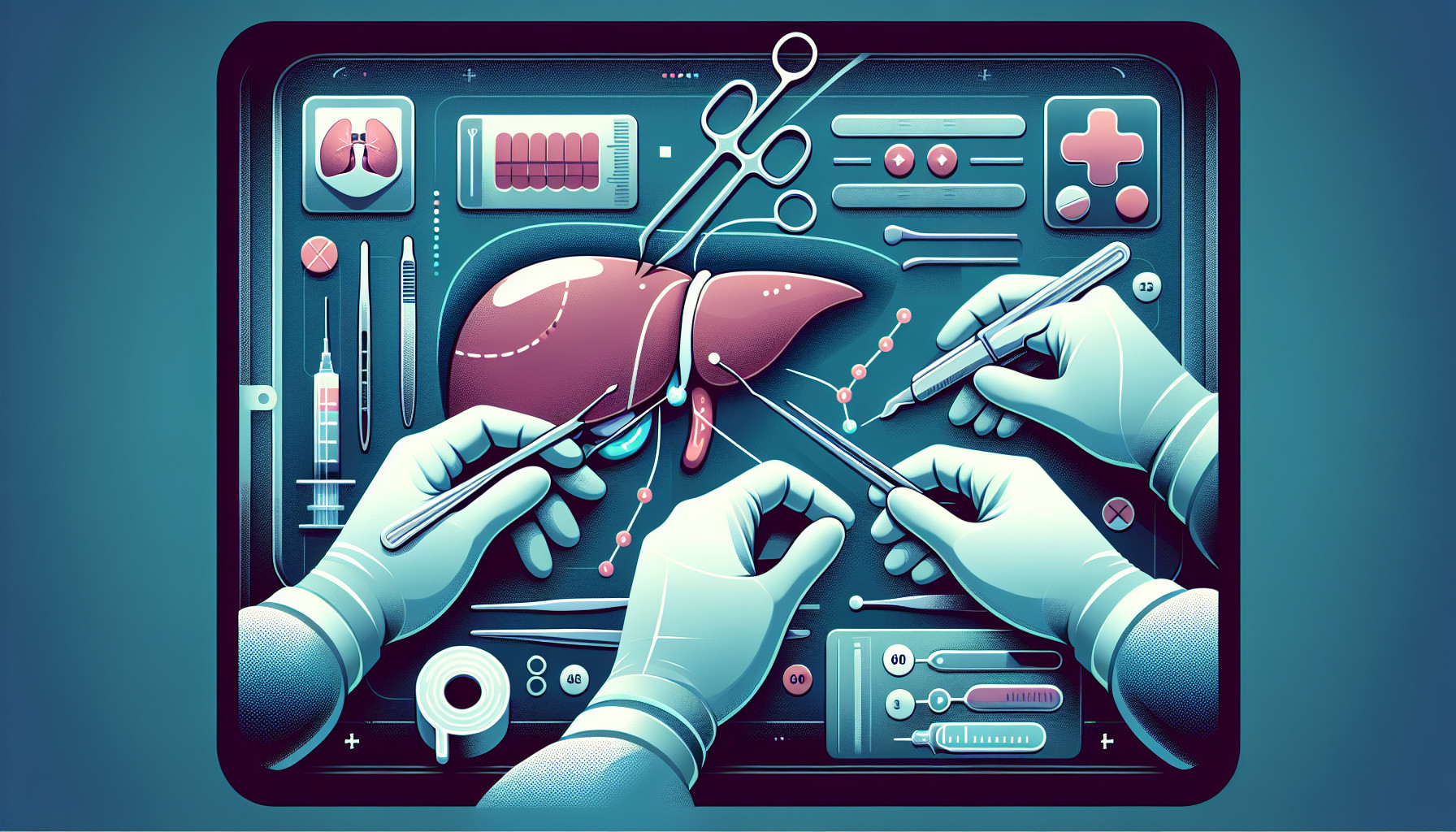Our Summary
This research paper examines the use of routine liver biopsies following a liver transplant. The study analyzed 867 biopsies from 875 patients who had undergone liver transplantation at Helsinki University Hospital between 2000 and 2019. The analysis showed that significant findings were identified in 20.1% of the biopsies. These findings were related to long-term outcomes such as graft survival.
The study found that certain conditions such as steatohepatitis (a type of fatty liver disease) and severe congestion in the liver could predict graft loss. Similarly, the presence of cholangitis (an infection of the bile duct), necrosis (tissue death), mild congestion, and significant biopsy findings were indicators of poor graft survival.
The research also looked at liver function tests (LFTs) and clinical risk factors to see if they could predict these significant biopsy findings. While there was a positive correlation between elevated LFTs and significant biopsy findings, the accuracy of this relationship was low. Even when combined with clinical risk factors, the ability to predict significant biopsy findings remained suboptimal.
In conclusion, the study suggests that routine liver biopsies following a liver transplant can be valuable as they often reveal changes that are associated with long-term outcomes, even when liver function tests appear normal.
FAQs
- What percentage of liver biopsies revealed significant findings after a liver transplant according to the research at Helsinki University Hospital?
- Which conditions identified in the liver biopsies were found to predict graft loss or poor graft survival after a liver transplant?
- How effective were liver function tests and clinical risk factors at predicting significant biopsy findings in post-transplant patients according to the study?
Doctor’s Tip
A helpful tip a doctor might give a patient about liver biopsy is to follow post-procedure instructions carefully, including taking any prescribed medications and avoiding strenuous activities for a period of time. It’s also important to keep the biopsy site clean and dry to prevent infection. Lastly, make sure to attend any follow-up appointments to discuss the results and next steps in your treatment plan.
Suitable For
Patients who are typically recommended for liver biopsy include those who have undergone liver transplantation, individuals with suspected liver disease or liver damage, patients with unexplained liver enzyme abnormalities, individuals with suspected liver cancer or other liver tumors, and those with autoimmune liver diseases such as autoimmune hepatitis. Additionally, patients with suspected liver infections, such as hepatitis B or C, may also be recommended for a liver biopsy.
Timeline
Before liver biopsy:
- Patient undergoes consultation with healthcare provider to discuss reasons for biopsy and potential risks.
- Patient may undergo blood tests and imaging studies to assess liver function and anatomy.
- Patient may need to fast before the procedure.
- Patient may receive sedation or anesthesia to reduce discomfort during the procedure.
During liver biopsy:
- Patient is positioned on their back or side on an examination table.
- Healthcare provider locates the liver using ultrasound or other imaging techniques.
- Local anesthetic is injected into the skin to numb the area where the biopsy needle will be inserted.
- A biopsy needle is inserted through the skin and into the liver to remove a small tissue sample.
- Patient may experience some discomfort or pressure during the procedure.
After liver biopsy:
- Patient is monitored for a few hours to check for any complications such as bleeding or infection.
- Patient may experience some pain or discomfort at the biopsy site for a few days.
- Patient may be advised to avoid strenuous activities for a few days.
- Results of the biopsy are typically available within a week and discussed with the patient by their healthcare provider.
What to Ask Your Doctor
Some questions a patient should ask their doctor about liver biopsy include:
- Why is a liver biopsy necessary in my case?
- What information will the liver biopsy provide about my condition?
- What are the potential risks and complications associated with a liver biopsy?
- How should I prepare for the liver biopsy procedure?
- Will I need to fast before the liver biopsy?
- How long will the liver biopsy procedure take?
- What can I expect during and after the liver biopsy?
- How soon will I receive the results of the liver biopsy?
- What will the results of the liver biopsy mean for my treatment plan?
- Are there any specific follow-up steps I should take after the liver biopsy?
Reference
Authors: Liukkonen VH, Nordin AJ, Färkkilä MA, Mirtti TK, Arola JT, Åberg FO. Journal: Clin Transplant. 2024 Mar;38(3):e15286. doi: 10.1111/ctr.15286. PMID: 38504561
